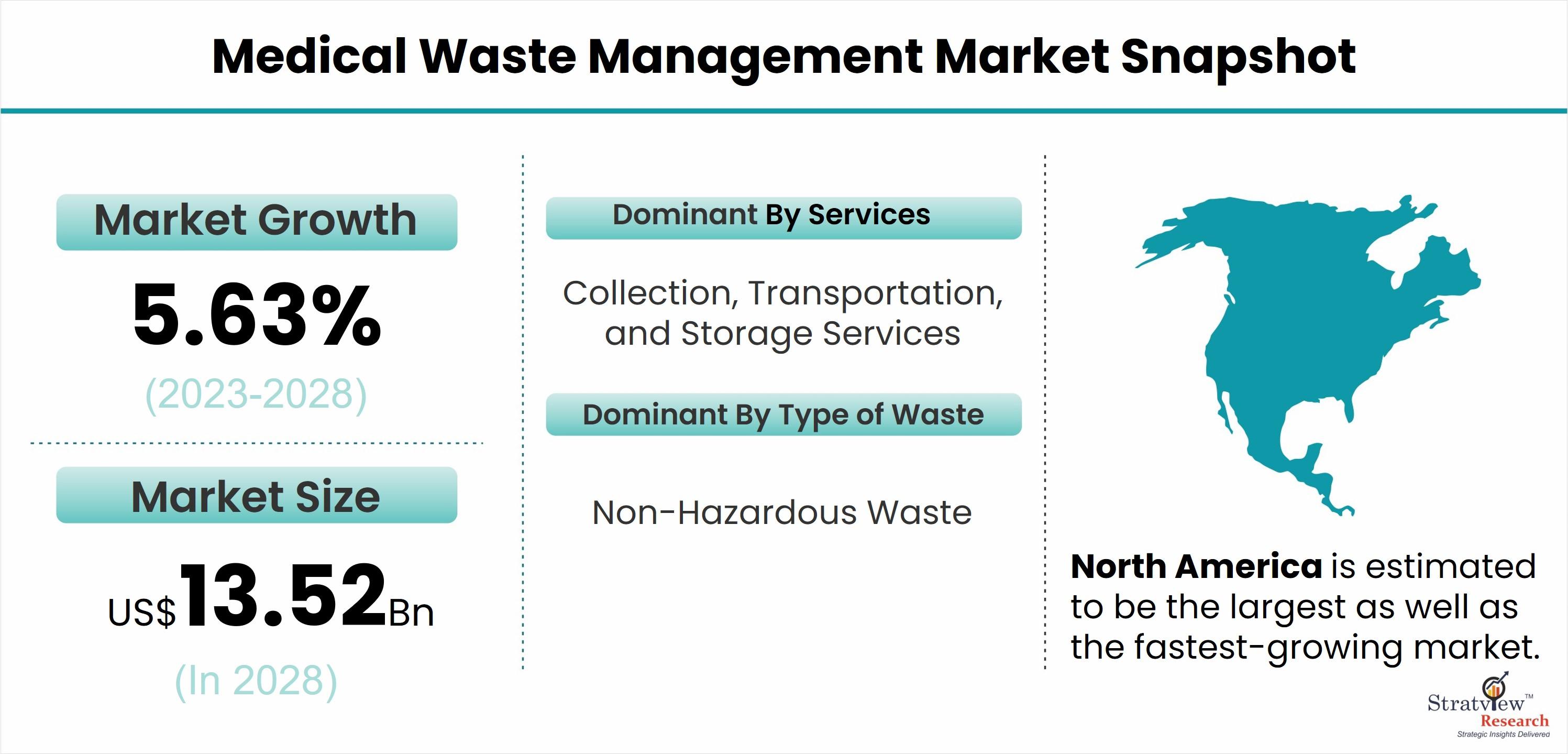According to Stratview Research, the medical waste management market was estimated at USD 9.72 billion in 2022 and is likely to grow at a CAGR of 5.63% during 2023-2028 to reach USD 13.52 billion in 2028.
In the intricate web of healthcare systems, one crucial aspect often hidden from public view is medical waste management. Ensuring the safe disposal of medical waste is not just a regulatory requirement but a fundamental responsibility towards safeguarding public health and preserving the environment. In this article, we delve into the dynamics of the medical waste management market, shedding light on its significance, challenges, and the pivotal role it plays in fostering healthy communities.
The Significance of Medical Waste Management
Medical waste, generated by healthcare facilities ranging from hospitals to clinics and laboratories, encompasses a diverse array of materials. From contaminated sharps to infectious biological waste and expired medications, these materials pose serious health and environmental risks if not managed properly. Safe disposal of medical waste is essential for preventing the spread of infections, protecting healthcare workers and patients, and preserving the integrity of ecosystems.
Understanding the Market Dynamics
The medical waste management market is influenced by various factors, including regulatory frameworks, technological advancements, and evolving healthcare practices. Here are some key dynamics shaping the market:
Stringent Regulations: Regulatory authorities impose strict guidelines governing the collection, transportation, treatment, and disposal of medical waste. Compliance with these regulations is not only a legal requirement but also essential for maintaining public trust and safety.
Technological Innovations: Advances in waste treatment technologies, such as autoclaving, microwave disinfection, and non-incineration methods, have revolutionized medical waste management. These innovations offer safer, more efficient, and environmentally friendly alternatives to traditional incineration methods.
Market Competition: The medical waste management market is highly competitive, with numerous companies vying for market share. Large multinational corporations, as well as smaller regional players, offer a range of services, including waste collection, treatment, and disposal, as well as consulting and training.
Public Awareness: Growing awareness of environmental issues and public health concerns has led to increased demand for sustainable waste management solutions. Healthcare facilities and waste management companies are under pressure to adopt eco-friendly practices and reduce their carbon footprint.
Challenges and Opportunities
Despite the importance of medical waste management, the industry faces several challenges:
Cost Constraints: Disposal costs can be significant, especially for smaller healthcare facilities with limited budgets.
Regulatory Compliance: Keeping up with evolving regulations and ensuring compliance can be complex and resource-intensive.
Technological Barriers: Access to advanced waste treatment technologies may be limited, particularly in developing regions.
However, these challenges also present opportunities for innovation and collaboration:
Technology Adoption: Investing in innovative waste treatment technologies can improve efficiency, reduce costs, and minimize environmental impact.
Partnerships and Collaborations: Collaborating with regulatory agencies, healthcare facilities, and waste management companies can facilitate knowledge sharing, capacity building, and the development of best practices.
Looking Towards a Healthy Future
As we navigate the complexities of the medical waste management market, it is essential to prioritize safety, sustainability, and community well-being. By understanding the market dynamics, embracing technological innovations, and fostering collaboration, stakeholders can work together to ensure safe disposal practices and build healthier, more resilient communities. Ultimately, safe disposal leads to healthy communities—a goal worth striving for in our collective pursuit of well-being and sustainability.


